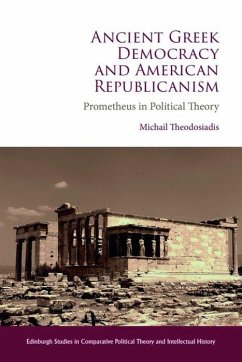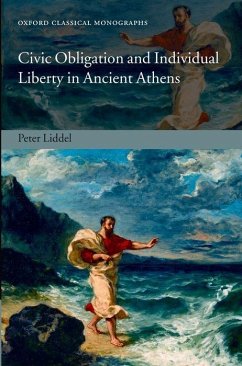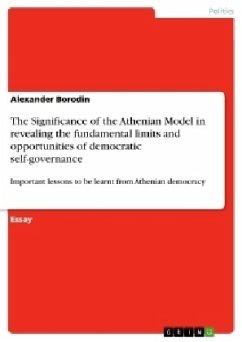
Basic ideas of ancient Greek democracy and their relevance for modern conceptions of democracy

PAYBACK Punkte
0 °P sammeln!
Seminar paper from the year 2008 in the subject Politics - Political Theory and the History of Ideas Journal, University of Applied Sciences Bremen, course: Democracy: Theory and Practice, language: English, abstract: The fascination that springs from the first democratic polity of history, the ancient polis ofAttica, remains undaunted right up to now and the examination of this alluring topic willcertainly occupy future scientists as well. The main questions are: How - and most of all why- did democracy develop at this time and at this place? How was this political systemorganised? And what l...
Seminar paper from the year 2008 in the subject Politics - Political Theory and the History of Ideas Journal, University of Applied Sciences Bremen, course: Democracy: Theory and Practice, language: English, abstract: The fascination that springs from the first democratic polity of history, the ancient polis ofAttica, remains undaunted right up to now and the examination of this alluring topic willcertainly occupy future scientists as well. The main questions are: How - and most of all why- did democracy develop at this time and at this place? How was this political systemorganised? And what lessons can we draw from the rise and fall of the Athenian democracy?In the following, I am going to touch some of these issues while analysing what the basicideas of Athenian democracy looked like, comparing the ancient with the modernunderstanding and investigating to what extent they might be relevant to current theories ofdemocracy. Thus, I am going to concentrate more on the abstract, intellectual foundations ofthe political system than on concrete manifestations like institutions and procedures. Frommy point of view, this approach appears to be more advantageous anyway because the formalframe could only be applied much harder to modern states than general ideas might be.As the basic ideas which led to the genesis and shaped the form of democracy may beconsidered the power of the people (commonly known as the rule of the people but I amgoing to show why this is not the appropriate translation), equality, liberty and the rule oflaw. After having examined the nature and consequences of these concepts, I am going tosummarise my results.













